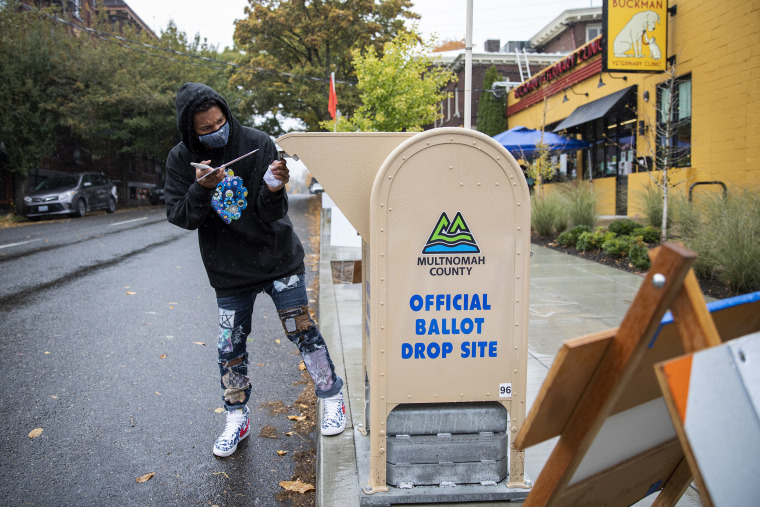Oregon voters will decide next year whether to implement ranked choice voting for all state and federal elections, according to a new law enacted by the Legislature.
That measure, passed Sunday by state Democrats in one of their final actions of the 2023 session, will give voters the final say — on the November 2024 ballot — over whether future statewide and federal races in Oregon should be conducted with the increasingly popular election model.
A burst of states, cities and counties have adopted the model in recent years, though Oregon is the first state in which the Legislature approved sending the question to voters.
In ranked choice elections, voters identify their first choices on their ballots, then rank the other candidates in order of preference. If no candidate receives a majority of first-choice votes on the first count, the election moves to an instant runoff. The candidate with the fewest votes gets eliminated, and ballots cast for that candidate are recast for voters’ second choices. The process repeats itself until a candidate reaches a majority.
Advocates of ranked choice voting have long said the setup benefits moderate candidates who don’t play to either party’s fringe and work instead to appeal to the broadest number of people. They’ve also said the model helps to draw in voters turned off by the two-party system and limit negative campaigning by candidates.
If voters in Oregon approve implementation of ranked choice voting in 2024, it would go into effect starting in 2028 for primary and general elections in the state for races including president, Congress, governor and Oregon secretary of state. The measure would also allow cities and counties to opt in to using the system in their local elections.
A handful of cities and counties in Oregon — Corvallis and Benton County, for example — already utilize ranked choice voting for local elections, while Portland, the state’s largest city, has decided to use the model for elections for mayor and city council starting next year.
Oregon is the latest state to advance the model amid a growing nationwide movement to boost its use. If voters approve the measure, it would become the third state to use the model for federal and statewide elections.
Last year, Alaska became the second state to use ranked choice voting in state and federal elections. Maine has used the system in state and federal elections since 2018. Both Alaska and Maine adopted ranked choice voting as the result of citizen-led ballot measures proposing the model. Oregon is the first state to refer the decision to voters through the legislative process.
“The way that ranked choice voting has taken off in Oregon is just amazing, frankly,” said Blair Bobier, co-founder of Oregon Ranked Choice Voting Advocates.
The growth in the use of ranked choice voting in local elections has been more explosive.
In 2022, voters in another eight jurisdictions passed ballot measures adopting it. That included Nevada, where voters approved a citizen-led constitutional amendment to institute ranked choice voting in all statewide general elections except the presidential election. Under Nevada law, the measure must pass again in 2024 to take effect.
In total, the number of cities and towns that switched to ranked choice voting has grown to more than 50, according to FairVote, a national nonpartisan group that has for decades worked to advance the use of ranked choice voting in the U.S.

